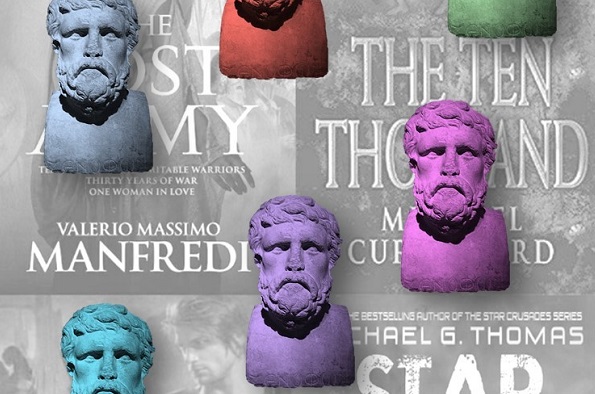
'The Trouble with Xenophon: Marching with the Ten Thousand in twenty-first century fiction' with Dr Fiona Hobden (University of Liverpool)
- Dr Alexei Zadorozhny
- Admission: Free.
Add this event to my calendar
Click on "Create a calendar file" and your browser will download a .ics file for this event.
Microsoft Outlook: Download the file, double-click it to open it in Outlook, then click on "Save & Close" to save it to your calendar. If that doesn't work go into Outlook, click on the File tab, then on Open & Export, then Open Calendar. Select your .ics file then click on "Save & Close".
Google Calendar: download the file, then go into your calendar. On the left where it says "Other calendars" click on the arrow icon and then click on Import calendar. Click on Browse and select the .ics file, then click on Import.
Apple Calendar: The file may open automatically with an option to save it to your calendar. If not, download the file, then you can either drag it to Calendar or import the file by going to File >Import > Import and choosing the .ics file.
This talk examines the reception of Xenophon’s Anabasis in twenty-first century popular fiction, focusing on two historical novels, The Ten Thousand (2001) by Michael Curtis Ford and The Lost Army (2008) by Valerio Massimo Manfred, a fantasy adaptation, The Ten Thousand (2008) by Paul Kearney, and the science fiction series Star Legions by Michael G. Thomas (2011-15).
Within the bounds of their individual genres, each novel engages intensely with the Anabasis story, and with its hero, Xenophon himself. However, while this engagement is productive, the outlook is not always straightforwardly positive. Across the board, war is an arena in which to prove oneself, but the wider presentation of war and its impacts unsettle this normative proposal. The character of Xenophon is key to this. Decentred from all four narratives and trapped in the role of leader in a gruelling campaign, he and his cognate characters variously embrace extreme violence, lose their passion and abandon their dreams, and reject war outright.
With varying degrees of reflection and critique, these Anabases present a hero who is troubled and/or troubling: whose thoughts, actions, attitudes and relationships illustrate tensions and ambivalences around the execution of war in contemporary Western democracies, by perpetuating and undermining hegemonic discourses familiar to the militainment industry in a post 9-11 world.
